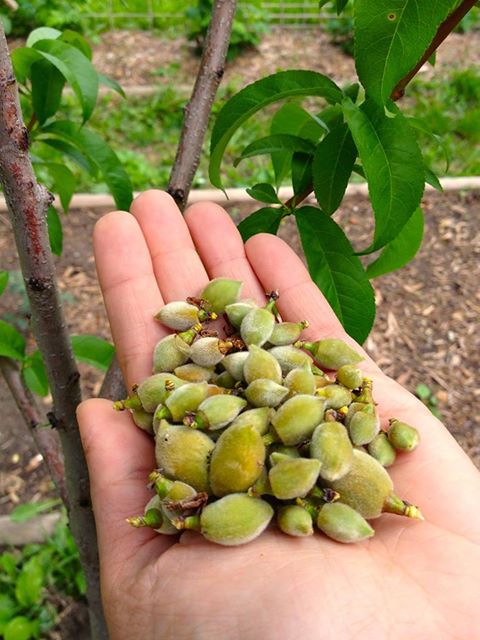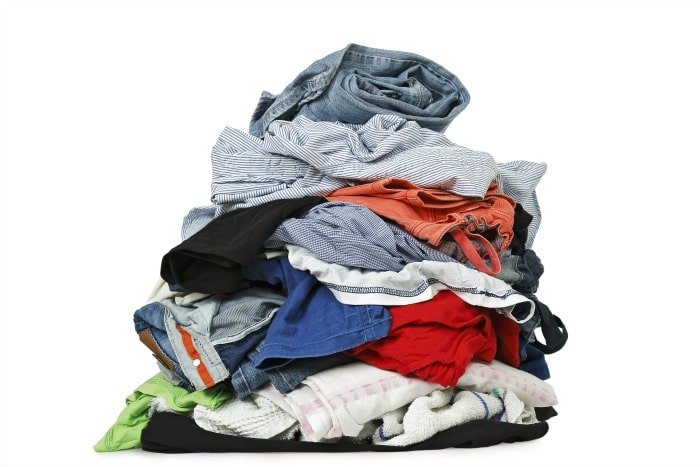I have several fruit trees in my yard that I just completed pruning. When I finished, it looked like there were as many branches on the ground as left on the tree. Here in Southern California, my peaches are already blossoming and forming baby peaches. Soon will come the heart-rendering job of thinning. It just kills me to pull six baby peaches off a branch to throw away, leaving only three to grow.

The only reason I do it is because I know that if I leave all of them on, I’ll have many tiny inferior peaches. If I thin, I’ll have large, beautiful, more flavorful fruit.
We live in a time when we and our children can do more, have
more, see more, accumulate more, and want more than any time we have ever
known. Too often we allow ourselves and
our children to be driven from one deadline, activity, or opportunity to the
next. We are busily engaged in a
multitude of trivial things that distract us from the few vital things that
make all of the difference. Maybe we need to do a little judicial pruning
and thinning in our lives.
One of my daughters, who works as a personal organizer, visited
me and helped me declutter and organize my garage. While we worked, she taught me. She said, “A popular decluttering book tells
people to pick up each item they own and ask the question, ‘does this spark
joy?’ and then let it go if it doesn’t.”
She doesn’t agree with this advice.
Does my toilet brush spark joy? No, more like disgust. But I’m not going to let it go because having
a dirty toilet would be more disgusting.
There are things you keep because they are useful.


The bigger problem with using the ‘spark joy’ approach is the
mindset it supports.
1) We place our own happiness above everything else and
continue to define our happiness in terms of our possessions.
2) It does not help us overcome the pull of consumption in our
lives. Owning less is great, but wanting
less is even better.
3) It does little to evaluate the motivations within that
caused the clutter to build in the first place, so it just comes back.
My daughter proposes an alternative question she read in an
article by Joshua Becker. “Does it help
me fulfill a greater purpose with my life?
…whatever [people] feel they were put on the planet to do, some of their
possessions (or time, I might add) are either directly or indirectly helping
them accomplish it, while others are holding them back. It makes the best sense to keep what aligns
with their goal in life and get rid of the rest.”
Sometimes we clutter our time like we clutter our homes.
I am sort of a jack of all trades. I have been blessed with many interests and
abilities. I love to write, to paint, to
compose music, to garden, to serve, to play the piano, to sing, to study, to
research. I am adequate in all of them,
but not really good in any of them. Why? Because none of them are my ultimate aim. I cannot be all things, and must choose where
to spend my time and efforts. My aim is
to be a good mother, to raise productive, independent, caring, hard working
children. It is to be a good wife and
treat my husband with love and respect and care. It is to be a good person, serving those
around me, being honest, keeping my word, being full of love instead of
judgement.
I have taken classes and read to develop each of my interests,
but not to the point of excelling. I use
them to serve others (playing the piano for the children in church, writing
this blog to help younger mothers, sharing the bounty of my garden with my
neighbors) and for my own enjoyment. But
they are not the dominant use of my time or energies.
So how should we be spending our time? Maybe for some, becoming an outstanding
artist is a central goal. Maybe another
yearns to be a concert pianist. We need to
identify our goals and then head in that direction. What things are we doing with our time now
that move us closer to our ultimate aim, and what things are getting in the
way? Could we use our time, money, and
energy in better ways? It would be a
good idea for us to identify our main goal in life. If we don’t know what the goal is, we don’t
know what is most important to us and we fritter and clutter away our lives.
One year I was the room mother for one of my children’s grade
school classes. For a winter party, I
made 32 felt ice skates with candy cane blades for the children. It took hours and hours. They were really cute, but--the only ones impressed were the other mothers, who were probably feeling intimidated because they didn't spend hours and hours on what they brought. The kids didn't care one bit. Being Southern Californians, they didn’t
know what ice skates were. The felt skates ended up on the floor or in the trash as
the children ate the candy canes that they would have been happy to have just
plain.

I clearly cluttered my life needlessly.

I clearly cluttered my life needlessly.
Housekeeping has never been one of my interests or talents. My dad told me that my room was like the layers in a geological formation. He could tell what I’d done all week by delving into the layers of clothes on my floor.

I “won” the pigpen award in my college dorm. Years later, I hadn’t reformed. A child of 10, coming to our house to play with my children, primly told me, “Your house is very messy.” So at one point in time, I decided I was going to have a perfectly clean house all the time. It was hard for me, but I was doing it, until I realized that I didn’t want to let my children make cookies in the kitchen, or do a craft project at the dining table, or play in the rain, or have friends over, or play dress-up, or build a fort of couch cushions and sheets, or many other things, because if they did it, they would make a mess, and the house wouldn’t be clean. While I definitely needed to keep better control over the mess and clutter, I overbalanced my clean control and lost my aim. As one dad said when someone commented on the worn spots his children had made playing on his lawn, “I’m raising children, not grass.”
Sometimes, when things go wrong, when we are under stress or duress,
we think we need to work harder, accelerate our frantic pace, run even faster
and do more to get through to the other side. Pres. Deiter Uchtdorf, a former airline pilot, talked about what pilots
do when they encounter turbulence.


“A student pilot,” he said, “may think that increasing speed
is a good strategy because it will get them through the turbulence faster. But that may be the wrong thing to do. Professional pilots understand that there is
an optimum turbulence penetration speed that will minimize the negative effects
of turbulence. And most of the time that
would mean to reduce your speed. It’s
the same principle that applies to speed bumps on a road.
“Therefore, it is good advice to slow down a little, steady
the course, and focus on the essentials when experiencing adverse conditions. When stress levels rise, when distress
appears, when tragedy strikes, going faster and harder doesn’t ease the way.
“When we unnecessarily complicate our lives, we often feel
increased frustration, diminished joy, and too little sense of meaning in our lives. Instead we need to focus on what matters
most.
“There is a beauty and clarity that comes from simplicity that
we sometimes do not appreciate in our thirst for intricate solutions. ...we would do well to slow down a little,
proceed at the optimum speed for our circumstances, focus on the significant,
lift up our eyes, and truly see the things that matter most.”
Once we have pondered, prayed, and decided which of the many
things we’ve cluttered our life with need to be pruned out, it is yet another
challenge to make it happen. We need to
need to think about which habits we should work on to make the worthwhile
things become more automatic, more prominent.
Just like cleaning and organizing my garage will take constant effort to
keep it from becoming filled with unimportant things again, it is daily efforts
applied consistently over time that will keep our lives focused on the
important and eliminate what is merely filling our time and lessening our
strengths.
In my next blog in two weeks, I’ll share some practical hints
and ideas in simplifying our children’s lives, which in turn will simplify
ours. Until then, find your joy.
photo by shinosan
photo by shinosan


No comments:
Post a Comment